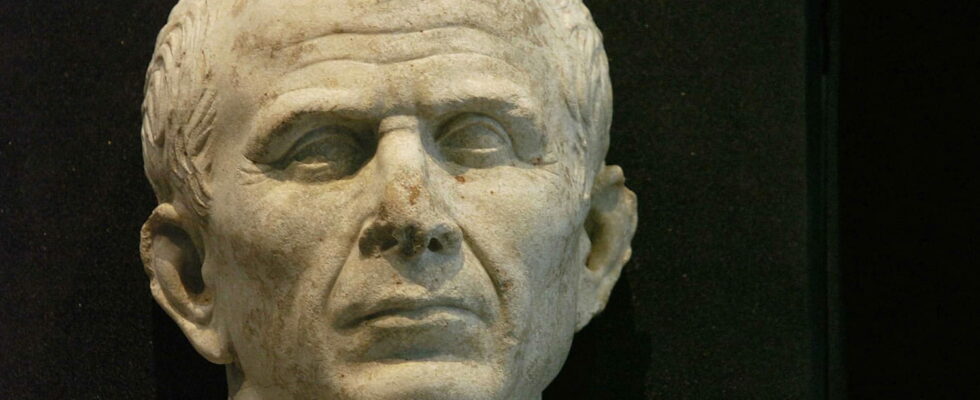This woman acted in her husband’s shadow during the plot to assassinate Julius Caesar in 44 BC.
On March 15, in 44 BC, Julius Caesar was the victim of a terrible plot. Conspirators managed to convince the young senator Brutus, son of one of the emperor’s mistresses, that Rome was threatened by its ruler’s thirst for power. Caesar was then assassinated by the senators aided by Brutus with no fewer than 24 stab wounds. If the name of Brutus has remained in history, another figure played a key role in the shadows.
A woman, named Porcie, daughter of Cato the Younger, leader of the resistance against Caesar in the Senate, was the only one in the secret of the plot according to the Roman historian Dion Cassius, Roman history, trans. Étienne Gros, edition F. Didot, 1845. His character was also represented in 1599 in a play by William Shakespeare entitled Julius Caesar. Who was Porcie really?

Porcie was above all devoted to the cause of his father, an aristocrat and republican of the conservative old guard. He placed virtue and civic responsibility as priorities, an idealism which his daughter inherited and which made her the first female Stoic. She even went so far as to marry a political ally of her father. The family then took part in the civil war of 49 BC which split Rome in two, with Caesar on one side and Pompey on the other. Porcia’s family was on Pompey’s side. Percie lost both men in her life shortly after the war and found herself powerless in the face of Caesar’s rise to power while continuing to believe in the Republic. She then married Brutus, a former ally of Caesar but sympathizer of the old republic.
This is how a group was formed with the aim of assassinating the emperor and Porcia swore to help her spouse to stick to her family’s beliefs. To prove her devotion and be informed of the plot, she went so far as to deliberately injure her thigh with a knife, as a token of her loyalty. Brutus then revealed the whole project to his wife who pushed him to follow through. According to the Greek historian Plutarch in Marcus Brutus, Brutus is then said to have said about his wife: “although lacking the strength of men, she is as valiant and active for the good of her country as the best among us”. While Brutus had to flee Rome to avoid reprisals from Octavian, Caesar’s heir, and Mark Antony, he ended up killing himself. If this was not proven, Porcie would have done the same by swallowing hot coals or inhaling carbon monoxide.
